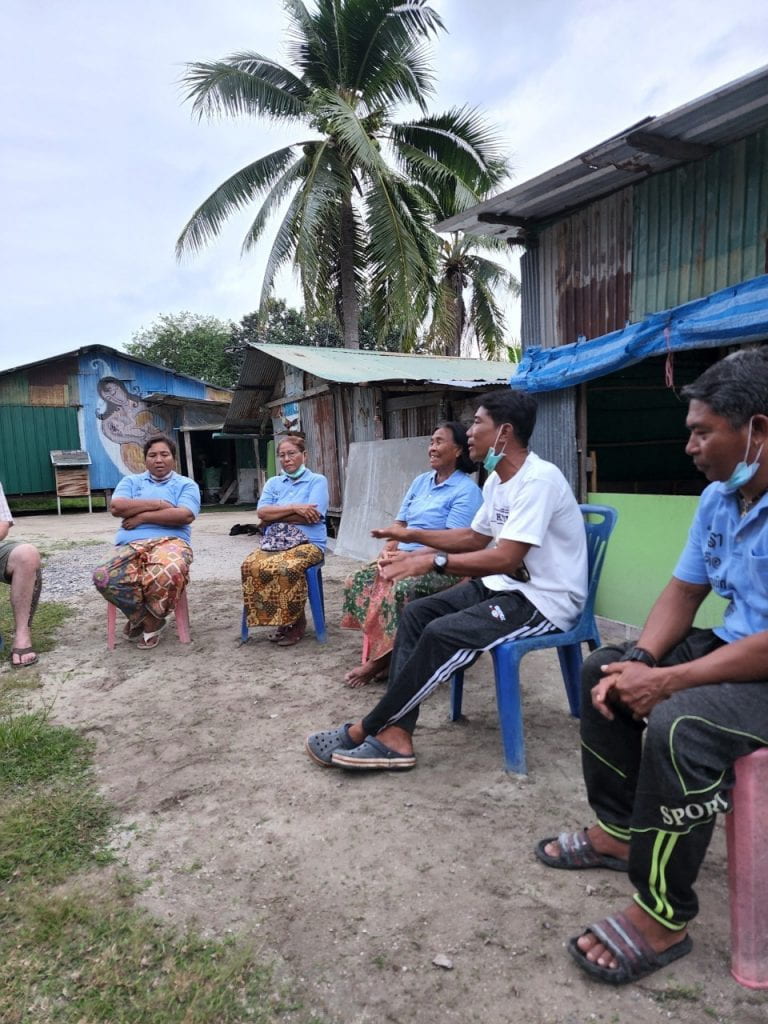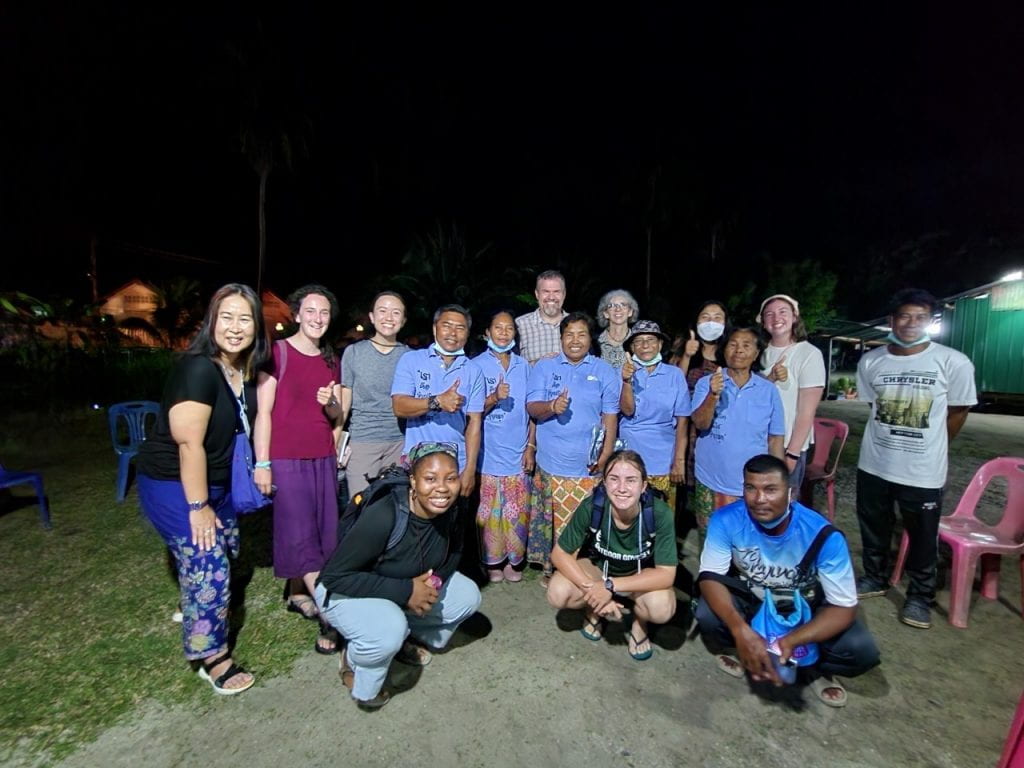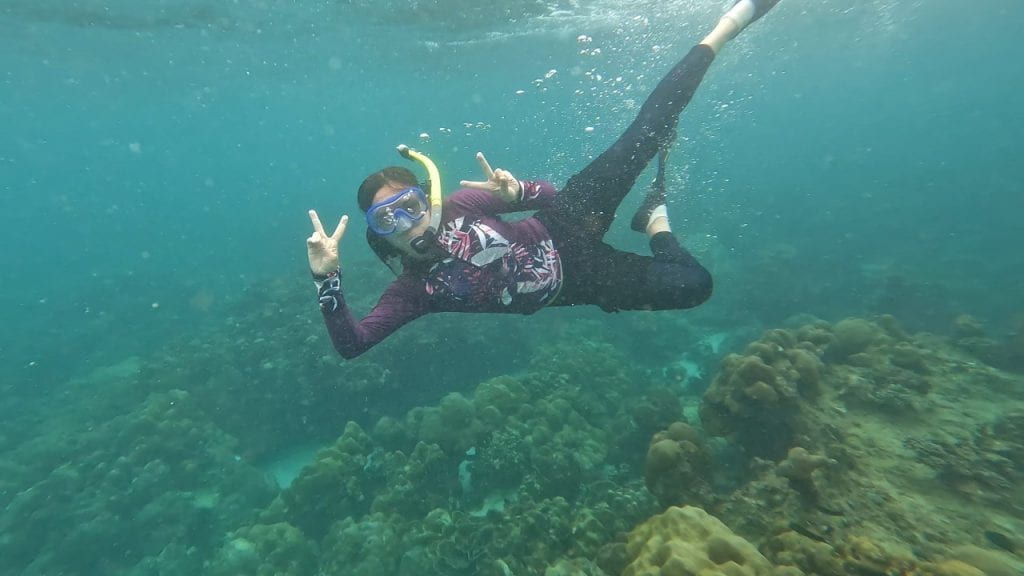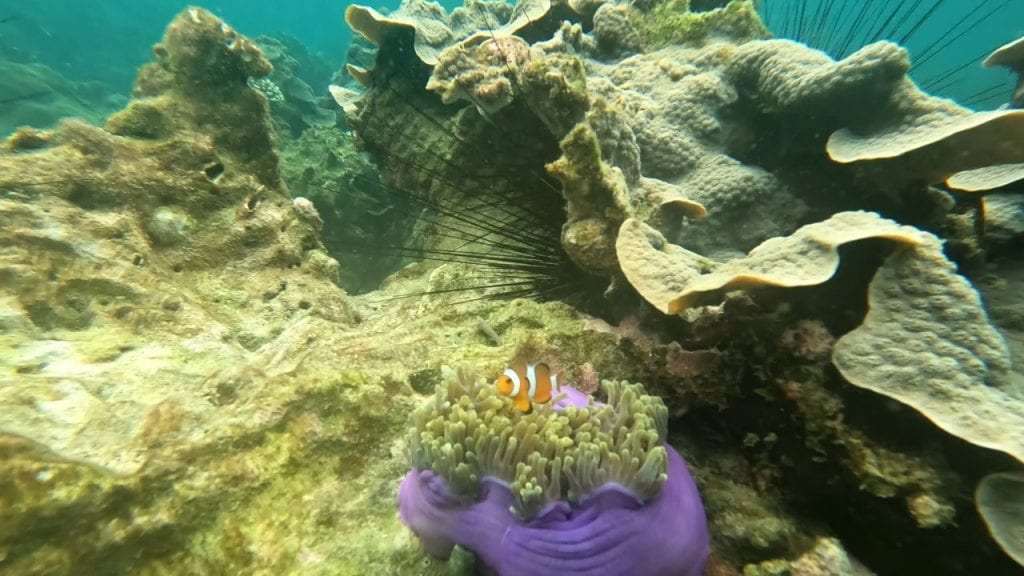An Interview with the Chaolei People of Southern Thailand
Now, we enter the final course of the sustainable development studies curriculum: Oceans. On campus, we took one week to learn about fishing regulations, sea grass, and more. Then, we took two and a half weeks in Southern Thailand. We stayed at two fishing villages, one of them all Muslim, and went camping on beautiful islands close to Malaysia.
I had the honor to speak with the Chaolei, or Urak Lawoi อูรักลาโว้ย, people of a small island off of the west coast of Southern Thailand called Koh Lipe. This island has exploded with tourism in the last three decades, and resorts take over most of the beaches. The 1,200 Chaolei people living on Koh Lipe are the indigenous people of the island and are involved in land-rights activism. I spoke to Pi Zhang, Pi Leuay, and Pi Kan, all members of the Urak Lawoi Self-Help Community Group who have known ISDSI for many years and helped our professor plan the Oceans course. We had the help of one professor and one instructor to help translate between English and Thai, and I wrote notes in my notebook as fast as I could. Therefore, what I write below has been heavily translated and summarized, but I hope that I captured the messages as accurately as possible.

Meeting members of the Urak Lawoi Self-Help Community Group for the first time
Q: What is the history of the Chaolei people on this island?
A: The Chaolei people were dispersed across Southeast Asia, with this specific community coming from Indonesia. Unfortunately, Indonesia wanted them to convert to Islam, but they were Animists. They wanted a place to be free, so they moved around every few years and came to Koh Adang, which is the island next to Koh Lipe. They found other Chaolei people and decided to stay on these islands. Here, they felt free.
Then, mainland Thailand asked the Chaolei people if they wanted this cluster of islands to be part of Thailand or Malaysia. They chose Thailand, because they did not want to become Muslim in Malaysia. Therefore, the Thai King’s mother gave them Thai last names and land titles.
Decades ago, there was a man, an outsider, who came and earned their trust. He became a powerful and important man and said that he would need to collect all of their land title documents, and they signed new documents per his request. Suddenly, he declared that all of the land was his, producing these new documents that the Chaolei people signed without being properly informed. At that moment, they had lost all of their documented rights to the land.
Continuously, investors in the mafia would threaten to take Chaolei beaches by bringing guns to their meetings. Much land was lost, but the small resort we stayed at remained Chaolei-owned because the owner, Pi Zhang, kept the investors away. Unlike other resorts, Pi Zhang used simple tools to build the houses that make up the resort, using local knowledge of wind direction to keep the structures away from strong winds.
Q. How are land-rights disputes continuing today?
A. Until today, as resorts and investors encroach further onto Chaolei land, the land dispute continues, and a lawsuit is still in the courts, with the hopes that the Chaolei will be returned their rights to their land.
Leaders of this lawsuit are traveling all over Thailand, meeting with other people and ethnic minority groups who have the same land rights problems, gaining advice and sharing ideas. They, along with one professor and various NGOs have helped them with their case.
Q. What about their way of life do they hope to continue?
A. Pi Leuay says that she hopes the next generation will have the same rights as her. She hopes to continue gathering food and fish from the ocean without being stopped by the national parks. For example, they are allowed to put fish traps in the ocean, but diving instructors do not tell tourists why the traps are there. These tourists will see the trapped fish and cut the traps open. Pi Leuay says people and tourists can come, but she does not want them to force her to feel like an outsider or use their bad influence.
Before outsiders came, they shared and helped each other out, but now that the resorts have come in, it’s all about the money. There is less reciprocity in the culture, and this is an impact of tourism and the cash economy. Because there was no tradition of using or saving money, they created a group that saved money together, like a co-op.

The shores of Koh Lipe with turquoise waters and many-sized boats. Many Chaolei fishers switched to tourism, taking tourists on their longtail boats around the island and on snorkeling trips.
Q. What is another step toward ensuring Chaolei land rights?
A. Tourists don’t even know they’re here on this island; they just want to travel. Even the resorts don’t know that there used to be people here.
The Chaolei people really want people to know that they’re still here and breathing and that they have rights.
—
This is why I decided to use this interview for my blog post. From these conversations, my cohort and I learned so much about the tourism industry in Southern Thailand. I was shocked by how little an average tourist could learn about social and political issues of the area they are staying in unless they tried very hard to educate themselves about it. Hopefully, I can do my part to spread awareness about the land-rights activism that is currently happening on Koh Lipe.

A group photo with the Urak Lawoi Self-Help Community Group


Snorkeling: one of the biggest reasons tourists come to these islands. After spending many hours in these waters, I can understand why!